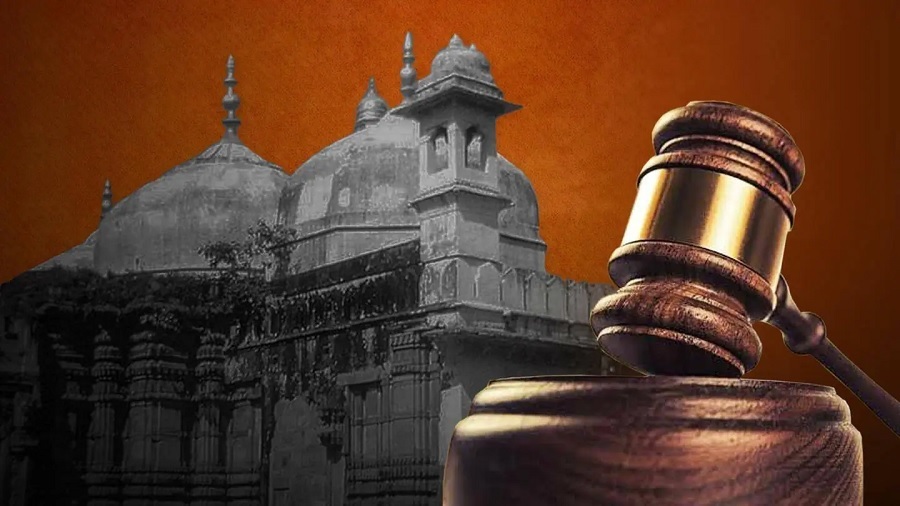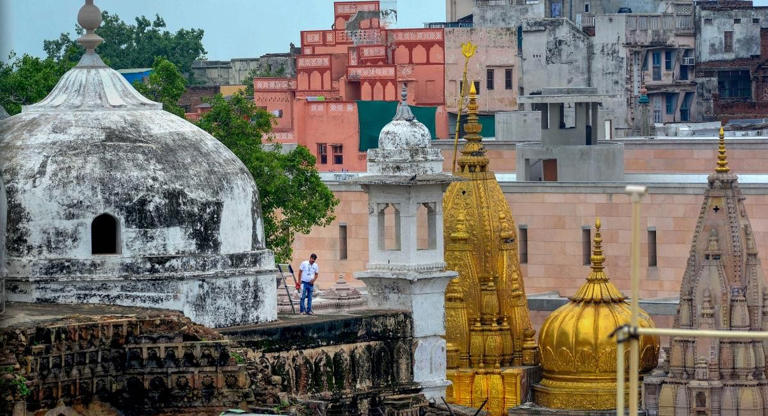Gyanvapi case: Supreme Court dismisses AIMC’s plea challenging Allahabad High Court order

Gyanvapi case: Supreme Court dismisses AIMC’s plea challenging Allahabad High Court order
The Supreme Court, in response to the plea filed by the Anjuman Intezamia Masjid Committee, upheld the administrative decision of the Allahabad High Court’s Chief Justice to transfer the Gyanvapi case from a single-judge bench that had been presiding over it since 2021. The apex court emphasized the importance of respecting the authority and decision-making powers of the chief justice of the high court, stating that interference in such matters should be avoided and that they should remain within the purview of the chief justice.
The case in question pertains to a legal dispute regarding the maintenance of a temple at the location where the Gyanvapi mosque is situated in Varanasi. The plea challenging the maintainability of the suit seeking the restoration of the temple was being heard by a single-judge bench in the Allahabad High Court. The decision to transfer the case from the single-judge bench has now been confirmed by the Supreme Court’s dismissal of the Anjuman Intezamia Masjid Committee’s plea.
The Supreme Court’s dismissal underscores the principle of judicial discretion and the significance of adhering to established administrative protocols within the judiciary. It highlights the importance of maintaining the integrity of the judicial process while upholding the authority of the chief justice in matters of administrative decision-making within the high court.
The bench, consisting of Chief Justice D Y Chandrachud and Justices J B Pardiwala and Manoj Misra, announced the dismissal of the case following the submission of arguments by senior advocate Huzefa Ahmadi, who represented the mosque committee. The court’s decision to uphold the chief justice of the high court’s order and deny the appeal underscores the significance of respecting the hierarchical structure and administrative decisions within the judiciary.

The bench emphasized the standard practice within high courts and reiterated the importance of refraining from interference in matters that fall within the chief justice’s jurisdiction. By affirming the decision of the chief justice of the high court, the Supreme Court demonstrated its commitment to preserving the autonomy of the judiciary and upholding the integrity of the legal process. This decision reinforces the principle that administrative matters within the high courts should be handled by the respective chief justices, underscoring the need for a structured and hierarchical approach to judicial governance.
The Anjuman Intezamia Masjid Committee (AIMC) has contested the decision to transfer the case from one single-judge bench to another, challenging the action taken by the chief justice of the high court. However, the plea was dismissed by the Supreme Court after Chief Justice D Y Chandrachud, along with Justices J B Pardiwala and Manoj Misra, reviewed the reasons for the transfer of the case. The Chief Justice chose not to disclose the details of the decision during the open court session.
The Supreme Court’s decision to withhold the reasons behind the transfer aligns with the principle of maintaining the confidentiality of certain administrative decisions within the judiciary. While the AIMC’s petition was dismissed, the Allahabad High Court had previously adjourned the hearing on the AIMC’s petition until November 8. This postponement indicates that the case remains under consideration, allowing both parties to further present their arguments and evidence before the court. The adjournment provides an opportunity for continued deliberation and a comprehensive examination of the legal issues at hand.
On November 2, a court in Varanasi granted the Archaeological Survey of India (ASI) an extension until November 17 to finalize its report. The ASI had initially requested additional time to complete the survey of the Gyanvapi mosque complex, stating that the survey work was finished but that more time was needed to draft the comprehensive report.
The court’s decision to grant the ASI an extension signifies the recognition of the complexity and significance of the survey process and the subsequent report drafting. Originally, the ASI was expected to submit its report by November 6. However, with the extended deadline, the ASI can thoroughly compile its findings and present a detailed and well-documented report that is crucial for the legal proceedings and the overall resolution of the matter.
The extended timeline allows the ASI to meticulously analyze the historical and architectural aspects of the Gyanvapi mosque complex, contributing to a comprehensive understanding of the site’s significance and historical context. This extension ensures that the ASI can fulfill its responsibility to provide an accurate and well-researched report that can serve as a crucial reference point for the ongoing legal proceedings related to the site.





